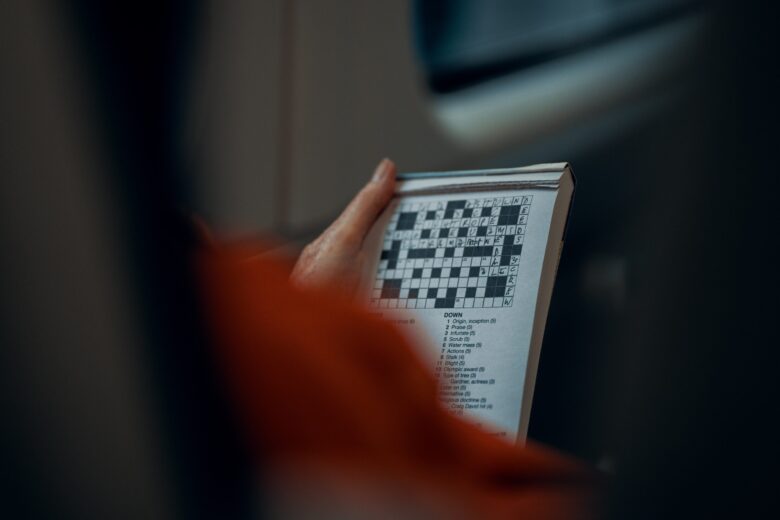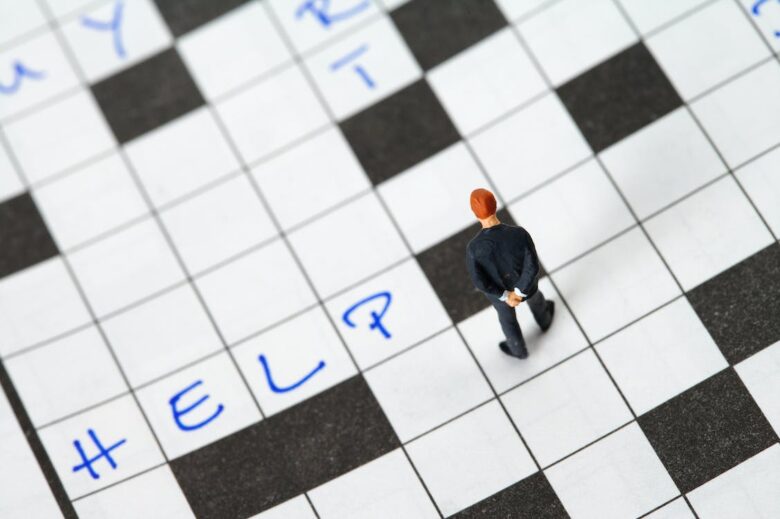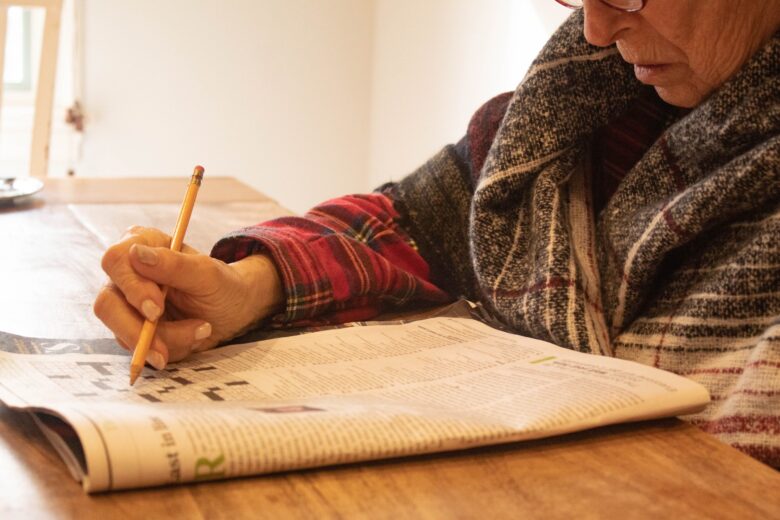Crossword puzzles can be an incredibly fun and rewarding pastime. Not only are they an excellent way to pass the time, but they can also help you improve your cognitive skills, like problem-solving and memory recall. But if you’re just starting out, it can seem daunting. Never fear! Here’s a guide to help you become a crossword puzzle master in no time.
Contents
Introduction to Crossword Puzzles

source:unsplash.com
Crossword puzzles can be a fun and creative way for people of all ages to expand their vocabulary, improve problem-solving skills, use communication skills, and simply enjoy the challenge that comes with finding the right words and clues. Whether you’re a first-time puzzle solver with an eye on mastering your hobby or simply want to get better at solving puzzles, this beginner’s guide can help you become more familiar with the finer points of the popular pastime.
At its core, crossword puzzles present clues – words or descriptions of particular objects – that are broken down into individual syllables and written into specific grids which correspond with numbered boxes in each row and column. Words will be written onto the grid either horizontally or vertically – some grids feature diagonal entries as well. The goal is to fill in all blank boxes on the grid according to device directions using answer words associated with given clues.
An additional layer of complexity comes from practicing different types of crosswords such as:
- Classic American-style
- Number puzzles like Sudoku
- Cryptic British style variety (where each clue must be deciphered)
- Specialized puzzle books linked to a particular theme (such as food, celebrities or travel)
- Themes are created by individual constructors who create unique puzzles for print or online publications
Understanding these various genres can help new solvers start to identify which constructs appeal most to them for personal leisure pursuits.
Start with the Basics

source:pexels.com
If you’ve never solved a crossword puzzle before, one of the best ways to get better is to start with smaller puzzles that are closer to your skill level. Basic crosswords typically have fewer words and clues than more advanced ones, so they won’t be as overwhelming for beginners. Additionally, basic puzzles often use simpler language, which makes them easier for new solvers to understand.
Once you’ve gotten comfortable with the basics, you can gradually work your way up to more challenging puzzles. As you build up your confidence and knowledge base, try tackling progressively harder levels until you reach the point where completing a puzzle feels like second nature.
Learn Common Clue Types
Figuring out what kind of clue is being asked is one of the most important keys to successful crossword solving. Different clue types require different strategies; some clues may require lateral thinking while others may need specific vocabulary knowledge or trivia facts in order to solve them correctly. To become proficient at solving crosswords, take some time to familiarize yourself with common clue types such as puns and analogies so that when faced with one in a puzzle, you know exactly how best to approach it.
Make Use of Resources

source:unsplash.com
There are plenty of helpful resources available online that can make solving even the toughest crosswords easier—and more fun! For example, there are online databases where you can look up definitions for words that aren’t familiar or search for crossword answers based on clues provided by other users who have solved similar puzzles before. Additionally, there are apps available that provide hints and tips on how best to approach certain kinds of clues. All these tools will come in handy when trying out particularly difficult puzzles!
Develop Strategies
Developing strategies for solving crosswords is the best way to become a master crossword solver. Many puzzlers have their own approaches, but there are a few logical strategies that can help even the most inexperienced solver work through a puzzle efficiently and accurately.
The first strategy is to look for any answers you already know and fill them in first. Even if you don’t know a single answer, start by filling in the clues with the shortest answers, as these are likely to be simple words or phrases that anyone can figure out.
Once you’ve done this, check each of your finished answers against the surrounding grid cells since they may reveal other clues related to them. This practice of deduction is one of the most important techniques in crossword puzzling and getting familiar with it is essential for mastering challenges quickly and accurately.
Finally, look for repeating patterns within the grid such as similar letter patterns or related number sequences appearing on both sides of an answer or across several rows or columns which can provide further clues about unknown answers. Break down each clue into its individual components or start solving them from both ends so you can fill in all available letters and complete the puzzle more quickly.
Practice, Practice, Practice

source:pexels.com
Crossword puzzles can be a great way to exercise your brain and improve your problem-solving skills. To become a master crossword solver, the most important step is simply practice. Like any skill you want to develop, it takes time, patience, and dedication to reach an advanced level of proficiency in solving crosswords.
Practicing with a variety of puzzles is also useful for becoming a master crossword solver. Crosswords come in many different formats with varying degrees of difficulty; trying different types will help expand your knowledge base and make it easier for you to recognize patterns when working on future puzzles. It’s important not to get discouraged if you find yourself struggling – some people learn better through experience than by using methods such as research or instruction books!
Finally, don’t forget the value of teamwork! Solving with others can be very rewarding – talking out loud while solving helps create more connections and bolster confidence when tackling difficult levels of difficulty. With practice and determination, anyone can become a master crossword solver!
Conclusion
With practice and patience anyone can become an expert at solving crossword puzzles! Start small by using basic level puzzles and move up from there as your skills improve over time; then familiarize yourself with common clue types so that recognizing them becomes second nature; finally make use of valuable online resources whenever needed! With this beginner’s guide under your belt, becoming a crossword puzzle master should be easy-peasy!
